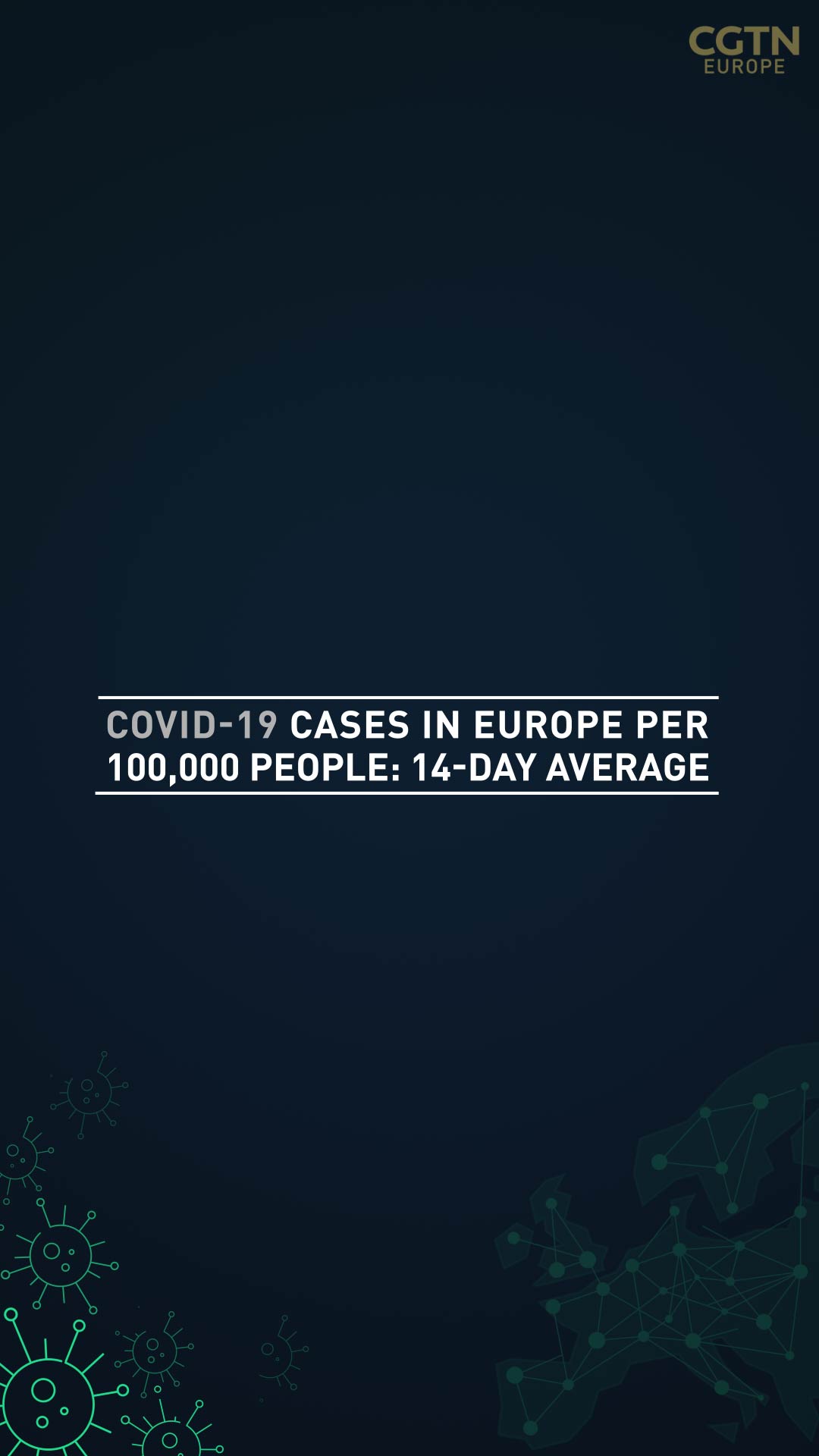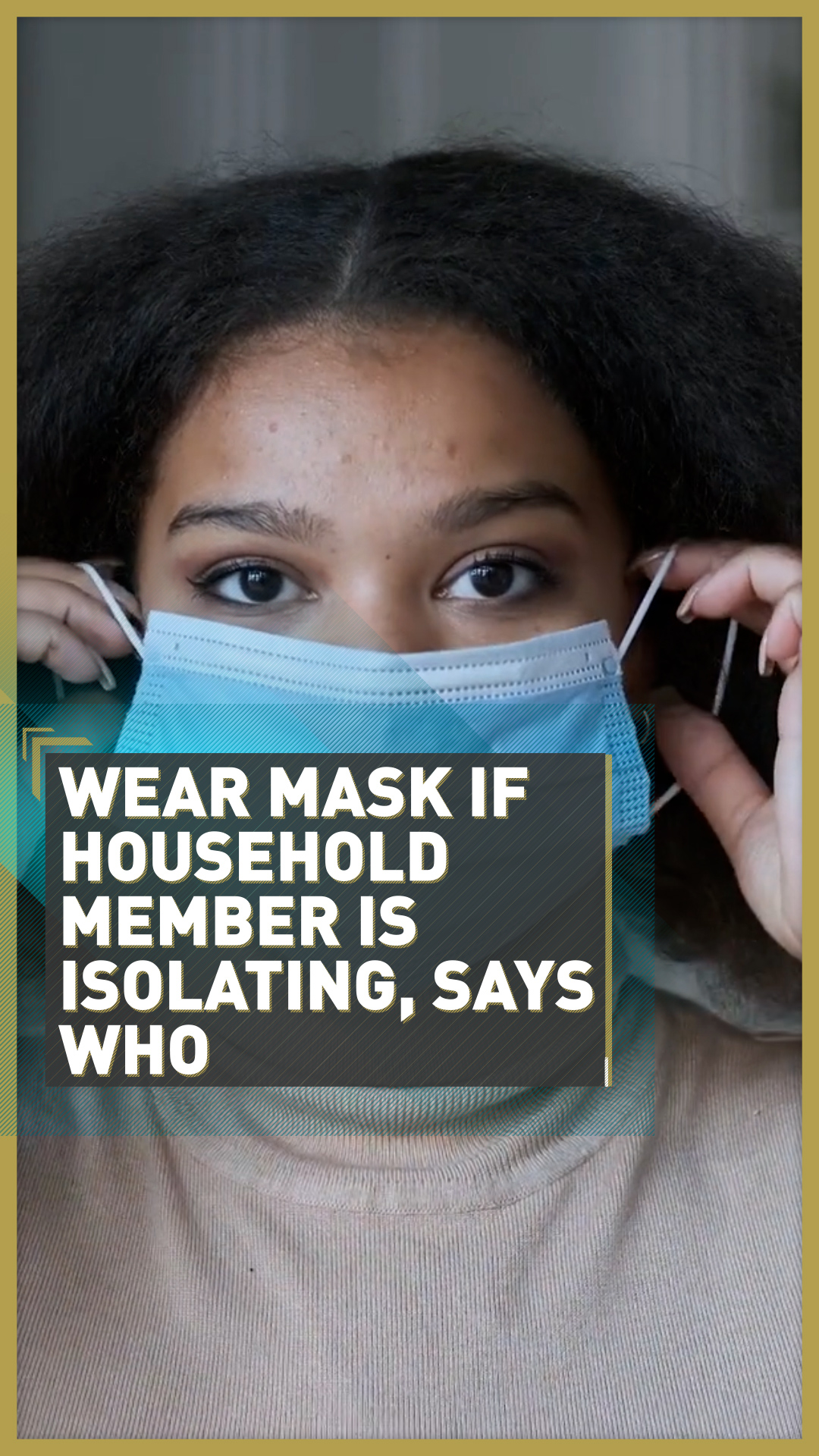TOP HEADLINES
- The European Union has reached a deal for 300m additional doses of the Pfizer/BioNTech vaccine, European Commission President Ursula von der Leyen said.
- Spain's total number of infections has passed 2 million after a further 42,360 new cases were reported in the past 24 hours.
- The UK's drug regulator, the Medicines and Healthcare products Regulatory Agency, has approved the Moderna vaccine, making it the third jab to be given the green light for use in the country.
- Vaccine passports are to be introduced in Denmark later this month, so people who have been inoculated can prove their vaccination status, the country's ministry of health has confirmed.
- World Health Organization experts have said the two doses of the Pfizer/BioNTech vaccine can be given up to six weeks apart, half the 12-week gap people in the UK may have to wait.
- The EU's drug watchdog, the European Medicines Agency, has said that six doses of the Pfizer/BioNTech vaccine can be extracted from each vial if the correct needles are used, paving the way for more vaccination capability across the bloc.
- Denmark is to restrict travel from all countries from January 9 and has advised its citizens against traveling overseas in a bid to slow the spread of the virus.
- Sweden's parliament has voted in favor of a new law that gives the government power to close certain businesses or limit their number of visitors and opening hours from January 10.
- Cyprus is to enter a second nationwide lockdown from January 10 amid a surge in new infections. People will be allowed to leave home twice a day for specific reasons, while the current 9 p.m. to 5 a.m. curfew will remain in place, Health Minister Constantinos Ioannou said.
- France's government is to only allow ski resorts to reopen their lifts when the situation of the pandemic allows it, the country's tourism minister Jean-Baptiste Lemoyne said.
- A study carried out by pharmaceutical company and vaccine developer Pfizer suggests its jab is likely to be effective against the new virus variants first identified in the UK and South Africa.
- Czechia's biggest crematorium, in the northeastern city Ostrava, has sought help from the government to distribute bodies to other crematoriums across the country, after becoming overwhelmed by a rising number of deaths in the area.

ACROSS EUROPE
Toni Waterman in Brussels
Belgium
Belgium's health council meets on Friday afternoon to discuss the current COVID-19 restrictions, but there's little expectation of a rollback despite infection rates and hospitalizations falling. The prime minister, who will chair the meeting, has said it's too early to ease up on the measures as the impact of travel over the holiday season remains unclear.
According to biostatistician Geert Molenberghs, up to 5,000 of the 80,000 people who traveled during the Christmas break returned to Belgium infected.
Separately, the COVID Task Force is drawing up a revised immunization strategy after coming under fire for its slow roll-out. New details of the plan are expected Friday.
00:20

The EU
Europe has doubled its deal with Pfizer/BioNTech, giving member states access to 600 million doses of the vaccine.
European Commission President Ursula von der Leyen, when announcing the deal, said 75 million doses of this order would be available by the second quarter, with the rest delivered in the second half of the year.
This brings Europe's entire portfolio to 2.3 billion doses, enough to vaccinate the entire population more than twice. Excess doses could be given to neighboring countries.
Von der Leyen also swatted away criticism that the Commission didn't buy enough of the right vaccines, saying it whittled down a list of 160 potential candidates to the six major contenders. She said without the Commission's early investment in capacity-building at these companies this summer, today's deal wouldn't have been possible.
"We're now reaping the benefits. And I'm very much convinced that this European course of action was the right one and I think that will be proven in hindsight."
01:42

Iolo ap Dafydd in London
UK drug regulator, the Medicines and Healthcare products Regulatory Agency, has approved the Moderna vaccine for use meaning the country now has three jabs that have been given the green light.
Meanwhile, for the first time since the start of the pandemic, any international traveler arriving in Scotland, Wales and England will have to provide a negative test result – taken 72 hours before traveling.
The reason for introducing this step now at international ports and airports, is to block new easily transmissible COVID-19 variants. There are some exemptions, including hauliers.
Extra testing is being introduced as almost 80,000 people have died from the virus in the UK, and the National Health Service is close to capacity in some regions of Britain. Ambulance waiting times in the southeast of England is 36 percent higher now than in December.
And as the vaccination program is being accelerated, depending on the availability of the three approved vaccines, it has been announced that schools in Wales will be closed until at least the end of the month. It follows similar decisions already taken in Northern Ireland, England, and Scotland.
Ross Cullen in Paris
France's prime minister and health secretary have set out the government's strategy for January. The nationwide nightly 8 p.m. to 6 a.m. curfew will continue until at least January 20, while 10 more regions have had their curfew hours extended to start at 6 p.m..
Cafes, bars and restaurants will have to stay closed until at least mid-February. Theaters, cinemas and museums are also staying closed until at least the end of the month, along with gyms, leisure centers and sports halls.
The government will hold a review on January 20 to see which sectors can reopen in February. The government aims to vaccinate 1 million people by the end of January and it says 600 vaccination centers will be open by that time.
The country's tourism minister Jean-Baptiste Lemoyne says the sector has taken a $73bn hit due to the pandemic. Notably, ski lifts and ski equipment hire shops are closed in mountain resorts at the moment.
But Lemoyne says funds worth $20bn have been allocated to support the tourism industry.

Czechia's biggest crematorium, in the northeastern city Ostrava, has become overwhelmed by a rising number of deaths in the area. /AP
Czechia's biggest crematorium, in the northeastern city Ostrava, has become overwhelmed by a rising number of deaths in the area. /AP
FROM OUR GLOBAL COLLEAGUES
CGTN Europe special: The Alps - Timeless and changing
CGTN China: Chinese mainland reports 53 new COVID-19 cases
CGTN America: LA hospitals and funeral homes run out of space as COVID-19 surges across the city
CGTN Africa: South Africa's former deputy defence minister dies of COVID-19
Sign up here to get the COVID-19 Europe bulletin sent directly to your inbox.
CGTN Europe has been providing in-depth coverage of the novel coronavirus story as it has unfolded. Here you can read the essential information about the crisis.

